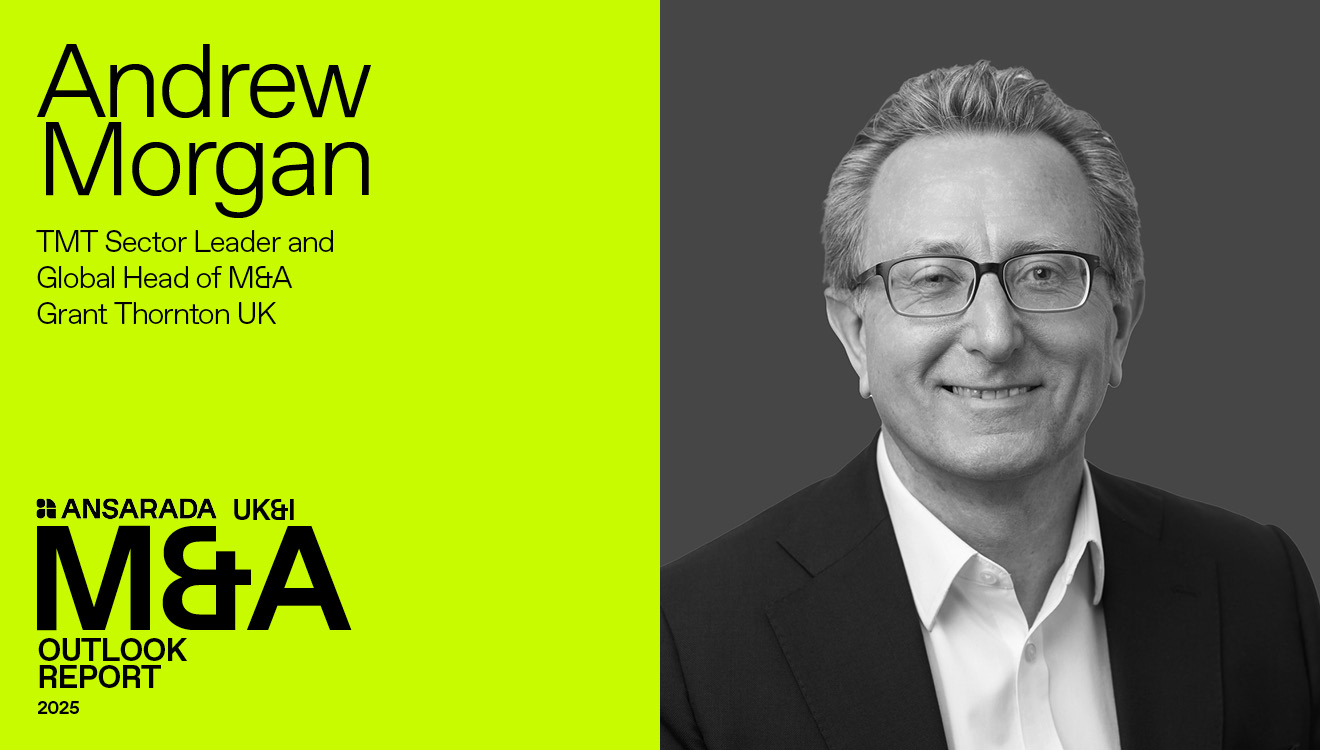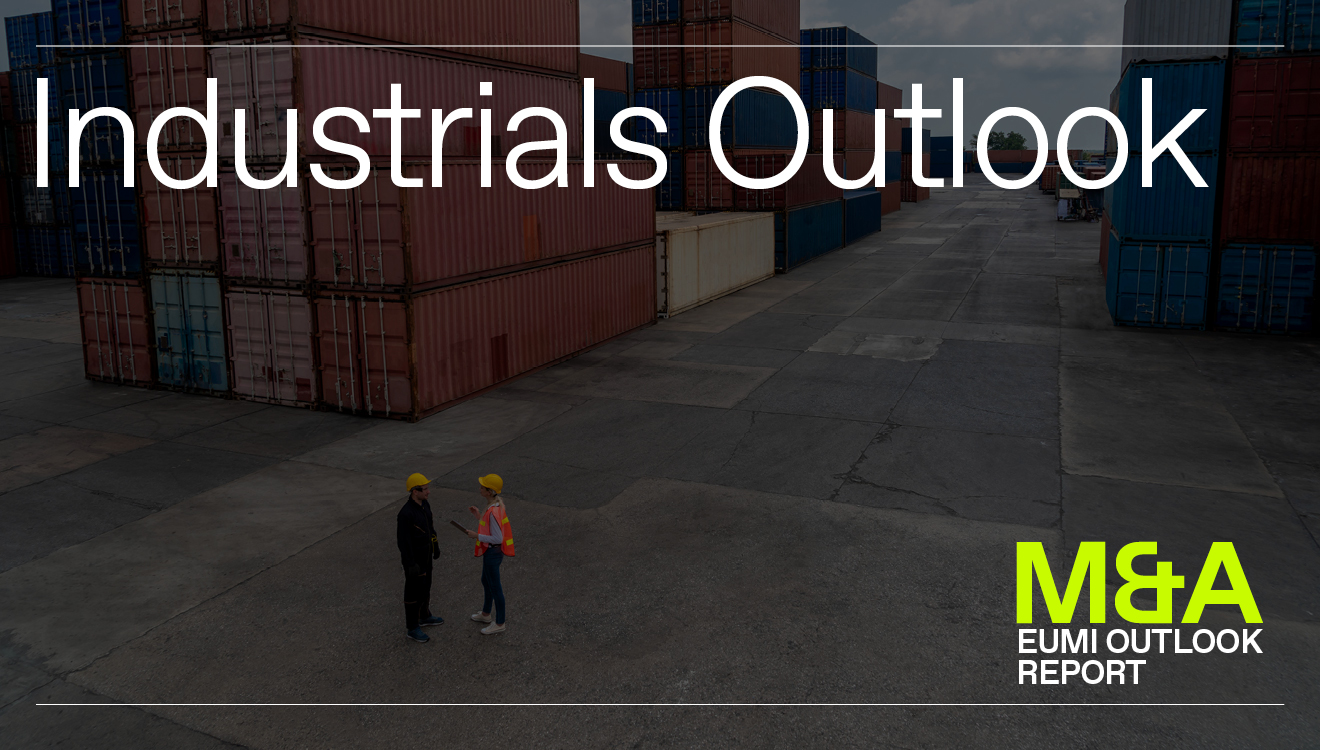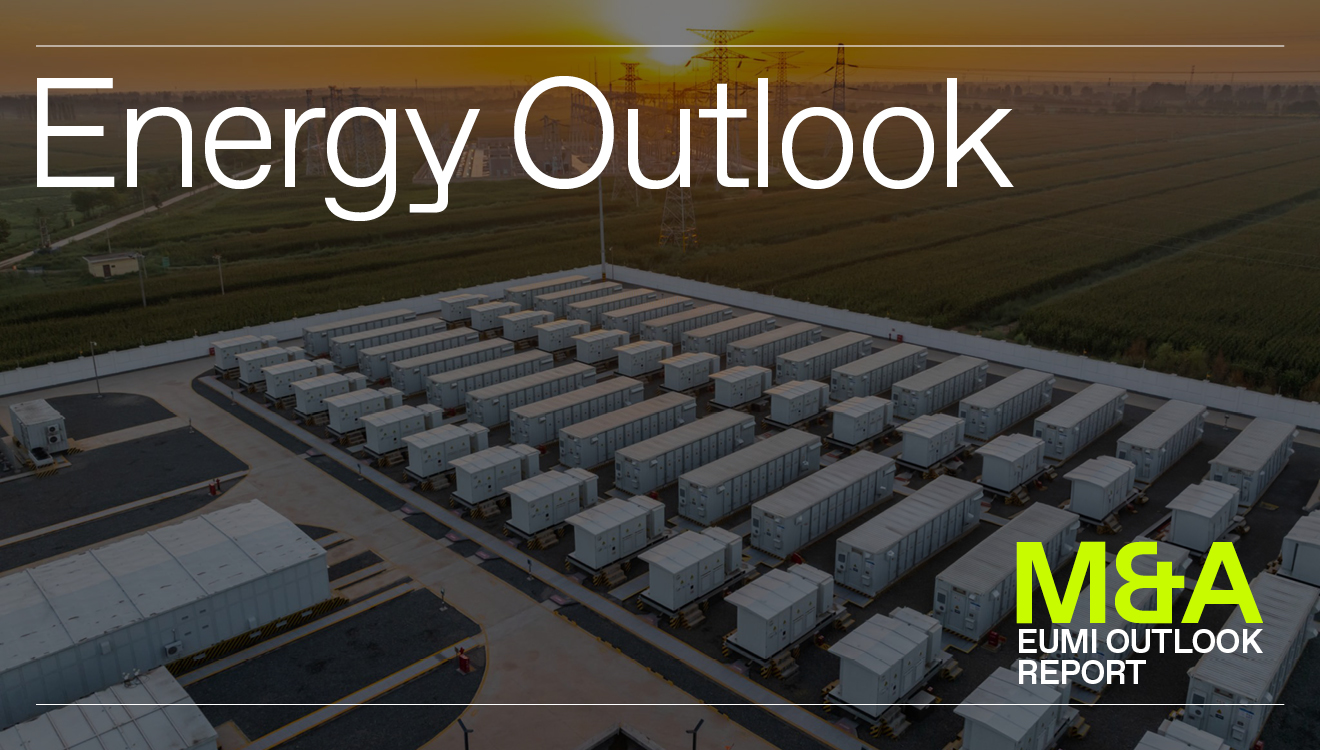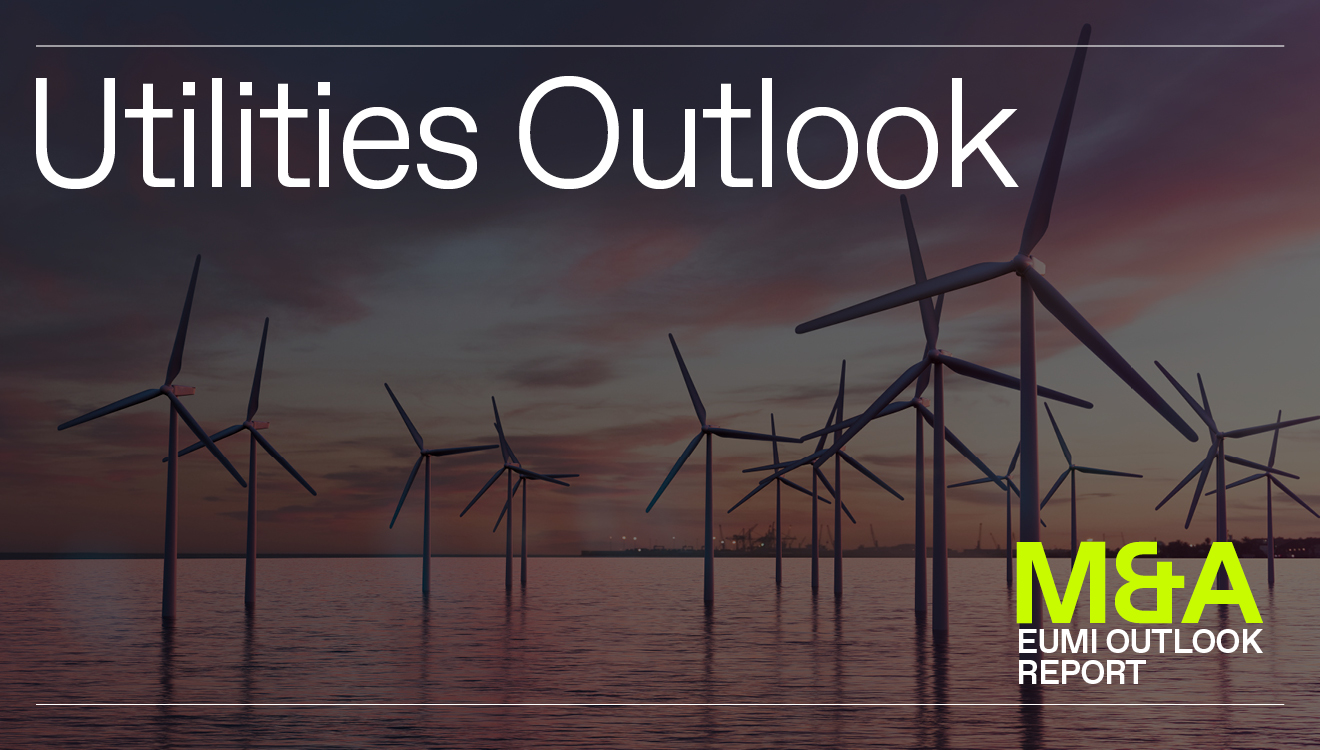Grant Thornton's Andrew Morgan: Cautious optimism for UK&I M&A
Andrew anticipates a rise in M&A activity in the UK and Ireland in 2025, driven by improving economic conditions and a backlog of deals.
By AnsaradaMon Jan 06 2025Mergers and acquisitions, Due diligence and dealmaking, Advisors

Notwithstanding any major shocks, Andrew Morgan, TMT Sector Leader and Global Head of M&A at Grant Thornton UK, expects a pick-up in deal activity in the UK&I region, with transactions from private equity firms likely to hit the market when rates head south.
This excerpt from our 2025 UK&I M&A Outlook Report, which features insights from 8 top UK&I dealmakers, explores Andrew’s perspective on how there are a number of reasons the M&A market is likely to be more active in 2025. These include a more stable economic and political environment in the UK&I, signs interest rates are moving downwards and a backlog of deals in the wings waiting for the right market.
Positive on the outlook for M&A in 2025
Andrew leads Grant Thornton’s UK technology, media and telecoms (TMT) M&A team and has closed more than £1.5 billion in transactions over a decade. Grant Thornton recently advised on the $690 million IPO of Raspberry Pi on the London Stock Exchange in June 2024, one of the only tech IPOs in London this year.
“We're positive on the outlook for M&A as we head into 2025. After a flat start to 2024, sentiment is more positive than during the challenging conditions in 2023 with high interest rates and inflation. In 2025, with global elections behind us, we're positive on the outlook with the prospect of a reasonable step up in deal activity levels,” says Andrew.
“As a general rule, the volume of restructuring activity hasn't come through in the UK and Ireland that might be expected with materially higher interest rates. No one wants to crystallise losses. If private equity houses didn't need to transact in 2023 or 2024, why would they look to bring assets to market in that environment? We’re seeing that loosen up now, and more of those assets come to market,” says Andrew.
“We're also seeing more disposal activity from larger corporates coming into the market, which is fairly typical for this time in the economic cycle. People start to think pretty carefully about what's occupying capital and management’s time,” he says.
Challenges and risks to look out for
Nevertheless, few funds are prepared to overstretch on the debt side. Conversely, while debt markets have eased this year, this has not been reflected in lower rates or stretched multiples. There's more competition in the market as well, from debt funds, as opposed to the main clearing banks.
Looking ahead, the main risk is the challenging growth outlook, which is dampening the deal outlook. “Very few businesses are shooting the lights out on their forecasts. Companies are working really hard to hit the growth projections they're setting out. It doesn't take a lot to move you off course and that can impact valuations, expectations and confidence. This is one of the key risks in terms of getting deals done,” says Andrew.
The expectation of a soft outlook means any risk to lower interest rates will pose a substantial risk to the market. “If that doesn't come through, that will certainly challenge expectations,” he adds.
The US political landscape is another potential risk to the deal outlook, given the US is the biggest cross border deal channel for the UK and Ireland. Chinese trade wars and any unexpected escalation of crises in the Middle East or Ukraine would also threaten deals. Andrew is still optimistic.
“Quite a lot of pointers are going in the right direction. But it is still quite a fragile recovery. Anything that shifts those expectations can have a pretty swift impact on business confidence,” says Andrew.
The impact of the regulatory environment
The regulatory environment is also having an effect on deals. M&A is increasingly under scrutiny from a regulatory perspective, which also needs to be factored into timing of deals. Although largely procedural, The National Security & Investment Act 2021 provides an additional hurdle which adds to transaction timelines.
“If you go back six or seven years, people were prepared to transact on the expectation there wouldn't be a referral for competition reasons. Now, if there's any risk, buyers will absolutely want to cover that risk off and pre-approval will be a condition to closing the deal. Nobody wants to get caught having to unwind the transaction or dispose of assets. Tech is getting more regulatory scrutiny from a compliance perspective and that's a consideration for the more transformational deals. We saw how long the Microsoft Activision deal took to get through the regulators,” Andrew says.
This 2022 transaction eventually saw Microsoft acquire the gaming leader Activision Blizzard for $68.6 billion.
Deal structures and trends
In terms of deal structures, earnouts are becoming more commonplace in a risk averse environment. Transactions involving employee ownership trusts (EOT) are also being done. In these structures, the vendor facilitates the transition to the new ownership structure involving the broader workforce.
“It's still a very small part of the market, but it does help bridge valuations in a world where leverage and private equity activity and appetite or valuations are not quite where they were,” says Andrew.
The rise of AI
Turning to the impact of AI on the UK and Irish deal market, Andrew says pureplay AI investing is still very niche. “There are a number of funds in the venture space investing in AI assets. But it's very difficult to pick a winner unless you have the technical expertise to do that. The world of pure AI investing is very specialised,” he says, adding the UK, with its universities and tradition of research, is in a good position as the AI trend plays out. AI is also an increasingly significant factor in the diligence process.
“We expect targets to have a very clear and coherent strategy around that. It might still be early days, and you may still be testing the water, but if you haven't got an answer, then that's going to be a challenge in getting your deal across the line and that applies across every industry. Capitalising on AI’s potential is a key plank in how you can shift your margins by a few percentage points,” he says.
Data quality remains crucial
Data quality remains a pivot point in every transaction. “That preparation phase is more important than ever. That covers a lot of areas, financial, commercial, technology including AI strategy, cybersecurity. We’re seeing the use of analytics, data and dashboards in the diligence process to make it easier and smoother. So, the quality of your data is important. People don't want to sit down and read a 300 page diligence report. They want to be able to look at your data cube and interrogate it and use tools and their own work to validate their thinking around it. You want to be able to show the progression you’re making.”
Delivery results for clients
On a personal level, Andrew says what gets him out of bed every morning is delivering results for clients. “The deals may not always be headline deals, but they're absolutely transformational for individuals and their families,” he says.
Looking ahead
Andrew Morgan’s insights offer valuable perspectives on the M&A landscape in the UK&I. To gain a deeper understanding of the key trends and predictions shaping the market, we encourage you to download the full M&A Outlook report. This comprehensive report features in-depth analysis to equip you with the knowledge you need of the current deal environment in the United Kingdom and Ireland to be able to capitalise on emerging opportunities.


